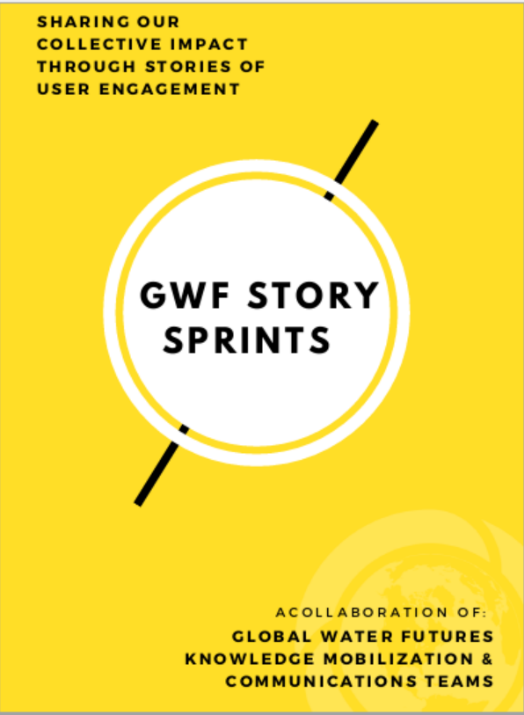Stories of Researcher-User Engagement
GWF’s Knowledge Mobilization and Communications teams are working together to produce accessible stories in a variety of formats that reflect the actual experience of Global Water Futures project researchers while interacting with knowledge users.
GWF’s Knowledge Mobilization and Communications teams are working together to produce accessible stories in a variety of formats that reflect the actual experience of Global Water Futures project researchers while interacting with knowledge users.
 From its inception, Global Water Futures committed to producing new knowledge that can be used in dealing effectively with the challenges of climate and social change. Co-production, collaboration and sharing of knowledge between researchers and practitioners working towards solutions to real-world water and climate challenges are at the core of knowledge mobilization. Experience has shown that the most effective mobilization involves a close association of researchers and practitioners with co-creation intentions and methods in transdisciplinary settings.
From its inception, Global Water Futures committed to producing new knowledge that can be used in dealing effectively with the challenges of climate and social change. Co-production, collaboration and sharing of knowledge between researchers and practitioners working towards solutions to real-world water and climate challenges are at the core of knowledge mobilization. Experience has shown that the most effective mobilization involves a close association of researchers and practitioners with co-creation intentions and methods in transdisciplinary settings.
With GWF moving into its final phase, we are beginning to share the program network’s research findings and methods with broader audiences both within and beyond academia, and evidence that knowledge users beyond academia have been engaged. These findings need to be presented in accessible formats that highlight both the scientific and technical implications of the research, and the interactions that have led to strengthened and new relationships that are producing more conversations among water stakeholders and further development of vital solutions. Pointing out how the research is transformative --– leading to essential structural changes in management and governance -- and inclusive – incorporating other knowledges and social interests – is a priority.
While awareness of GWF project research findings shared through scholarly publications is strong within the scientific community, much less is known about the interactive processes that project researchers have used to engage with partners and other potential users: processes that are key indicators of research uptake. These transdisciplinary, co-creative processes that produce memorable knowledge exchange take place throughout all phases of the project pipeline. Because they are experience-based, they are often considered irrelevant to empirical results, and not worthy of documentation and analysis. Often they are lost in the labour-intensive and time-pressured activity needed to collect, analyze, and publish data. Accounts of these interactions are often considered anecdotal and therefore non-essential. But often these interactions are signals of creativity and fresh understanding that moves the research in a new direction.
This is an ongoing effort with principal investigators and supporting researchers representing GWF projects from across the country. Find some of the stories here.
